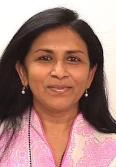 Flora, a 15-year-old girl from Benin, calling a halt to Gender Based Violence. Credit: Miguel A. San Joaquín / World Bank.
Flora, a 15-year-old girl from Benin, calling a halt to Gender Based Violence. Credit: Miguel A. San Joaquín / World Bank.
Jeanne, a 17-year-old girl, speaks softly but courageously to radio listers as she shares her harrowing story. Once a brilliant student with dreams of becoming a lawyer, her life changed at age 13 when her 6th-grade teacher sexually abused her, leaving her pregnant. Forced to drop out of school, she survives by washing the dishes door-to-door. Her abuser, unpunished, has threatened to harm her if she speaks out. Jeanne has one heartfelt plea: justice for perpetrators of gender-based violence, (GBV).1
Across the globe, GBV – especially domestic violence – is often spoken about in hushed voices and dismissed as a private matter. In Sub-Saharan Africa rates of GBV and its acceptance rates are among the highest in the world. So, what can be done to break the silence?

Source: World Bank, Advancing Gender Equality: A Regional Gender Action Plan for Western and Central Africa 2023-2027.
There are strong reasons why GBV should keep policymakers up at night. It is not only a human rights violation, but a real public health crisis and a barrier to education with abused girls at increased risk of dropping out of school and with a significant impact on economic growth. Domestic violence alone costs countries 1.2 to 2% of GDP—the equivalent of most developing nations’ spending on primary education. In Sub-Saharan Africa, a 1 percentage point increase in the share of women experiencing violence can reduce economic activities by up to 8%, according to the IMF. Moreover, GBV ranks as the top women's rights issue that Africans want their government to address, as revealed by recent Afrobarometer surveys.
Policymakers have the tools to address GBV effectively, notably through laws and policies addressing prevention, survivor assistance, and accountability for perpetrators. Many governments in Western and Central Africa have adopted legislation and regulations to eliminate forms of GBV, as reported by the World Bank Group’s Women, Business and the Law. In recent years, the World Bank has been supporting several reforms through Development Policy Operations: the Central African Republic has mandated free healthcare for GBV survivors, Niger set up Child Protection Committees to combat child marriage, and both Togo and Benin have adopted regulations to ensure comprehensive and subsidized support services to GBV survivors. Togo has also enacted a comprehensive law to combat sexual violence in schools.
Such laws and policies not only establish rights and set an accountability framework but can also pave the way for increased investment and can have a strong signaling effect that can influence harmful social norms. Evidence also shows that countries with domestic violence laws see less severe economic impacts from GBV.
While progress is notable, much remains to be done. There is scope for further legislative, policy, and institutional reforms to better protect girls and women in Western and Central Africa. For instance, Female Genital Mutilation (FGM) is banned in most countries, but not in all. Those performing or allowing the procedure are often not criminally responsible and the practice of Cross-border FGM remains unsanctioned. GBV in schools also remains largely unaddressed in laws and policies, even though nearly 29% of girls in Sub-Saharan Africa report having experienced either physical or sexual violence at some point. A tremendous amount of work is needed to make existing laws and policies better known and effectively implemented, including through community-level engagement to address harmful social norms. The Sahel and Sub-Saharan Africa Women’s Empowerment and Demographic Dividend Projects (SWEDD and SWEDD+) have been supporting countries in strengthening and raising awareness on their legal and policy frameworks to protect women and girls, leveraging networks of legal practitioners. The new Africa Gender Legal and Policy Reforms Task Force is providing technical advice, and research to advance reforms with support from partners like the Global Financing Facility and Global Affairs Canada.
As we mark the start of 16 Days of Activism Against Gender-Based Violence campaign, let’s join the call to rule out and root out all forms of violence against girls and women, so we can create a world where girls like Jeanne are free to pursue their dreams and rise to their full potential.
-----
1. Testimony on a radio program on sexual violence in school settings sponsored by the WB-financed Sahel Women’s Empowerment and Demographic Dividend Project in Benin.



Join the Conversation